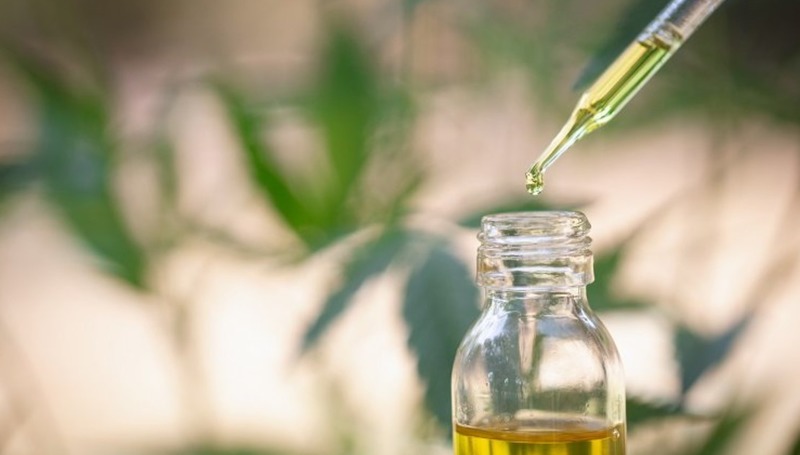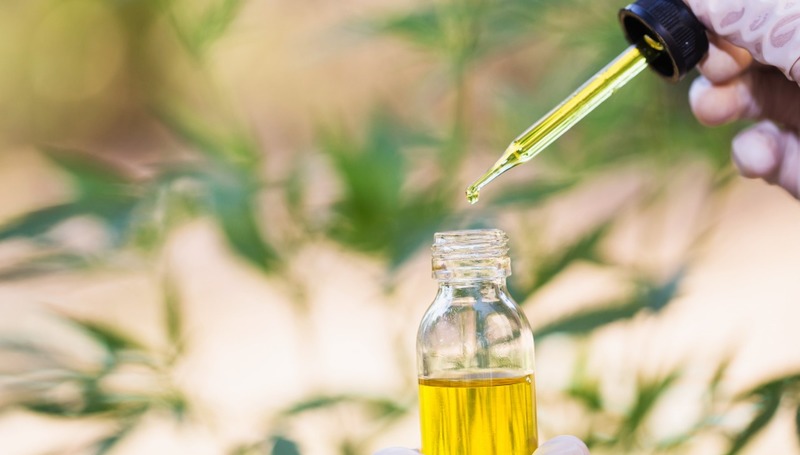There’s a lot of buzz lately about cannabidiol (CBD), one of the two non-intoxicating cannabinoids found in cannabis (hemp and marijuana) plants. CBD produced from hemp is getting attention for its therapeutic qualities without producing any mind-altering effects. This is due to the fact that unlike other cannabinoids, such as THC, CBD does not produce a “high” or psychotropic effect on its own.
According to a World Health Organization (WHO) paper, naturally occurring CBD is safe and well tolerated in people, and there is no evidence of any public health concerns associated with the use of pure CBD: “Pure cannabidiol does not appear to have abuse potential or cause harm.”
What is CBD Used to Treat?
CBD has been shown in clinical trials to be effective in the treatment of epilepsy, including some extremely rare childhood epileptic disorders that don’t respond to anti-seizure medications. Epidiolex, a purified CBD product, was authorized by the FDA this year for certain epilepsyn

How Does CBD Work?
Cannabidiol (CBD) is a cannabinoid that has been shown to interact with receptors in the central nervous system, and some evidence suggests it can have a calming effect. It might also be an anti-inflammatory and help pain management by producing pain-relieving effects.
A growing number of people are turning to CBD as a therapeutic option in place of pharmaceutical medications to treat their conditions. People with depression or anxiety might be seeking to avoid SSRIs (selective serotonin reuptake inhibitors), which can have a variety of negative side effects. CBD has the potential to help people suffering from pain avoid highly addictive opioids.
Is It Legal?
The legality of CBD depends on whether it comes from the hemp or marijuana plant, which differ in terms of THC levels. In 2018, the Farm Bill was passed, legalizing industrial hemp-derived CBD across the country. Industrial hemp plants are used to make hemp-derived CBD. A hemp plant must have no more than 0.3 percent THC under federal regulations.
Cannabis plants are used to make marijuana-derived CBD, which has a higher THC concentration than hemp-derived CBD. Cannabis-based CBD products have been found to contain THC levels between 0.3 percent and more than 15 percent. Cannabis-based CBD is prohibited under federal law, but it is permitted in certain states depending on certain conditions. Marijuana-based CBD is legal for medical use in Illinois.

What are the Potential Benefits of Using CBD?
Cannabidiol (CBD) is being praised for a variety of health benefits, including pain relief, inflammation reduction, and stress alleviation. According to Engvall, researchers and practitioners are still discovering new things.
“Pre-clinical research and anecdotal evidence suggest that CBD has the ability to relieve sleep issues, stimulate bone growth, slow tumor growth, and aid with seizure disorders. It’s a “very simple yet extremely powerful” process.”
Janice Adams, a 12-year G2O massage therapist, claims that many of her customers are aware of CBD’s health advantages. She also believes that a few CBD-rich droplets of Mary’s Nutritional Remedy Tincture at the end of a hectic day assist her in regaining serenity. “It just helps me keep my composure,” she concludes.
A prescription cannabidiol (CBD) oil is considered to be a helpful anti-seizure medication. However, further study is required in order to assess CBD’s additional characteristics and safety.
Cannabidiol (CBD) is a chemical contained in cannabis. Unlike THC, which has a psychotropic element (tetrahydrocannabinol), CBD does not have one (delta-9-tetrahydrocannabinol). Oil is the most common CBD product, although extracts, vaporized liquids, and oil-based capsules are also available. If you know where to look, you may purchase everything from meals to beverages and cosmetics online.
Now, Epidiolex is the only FDA-approved prescription oil for the treatment of epilepsy. It’s allowed to help individuals with two types of seizures. State laws on CBD use differ considerably when compared to other states. While CBD is being investigated as a therapy for a range of diseases, including Parkinson’s disease, schizophrenia, diabetes, multiple sclerosis, and anxiety syndrome, there is still little evidence demonstrating its effectiveness.
Although CBD has several drawbacks, it isn’t for everyone. CBD might cause unpleasant adverse effects including dry mouth, constipation, decreased hunger, drowsiness, and tiredness. CBD interacts with a variety of medications you’re taking and can cause bleeding problems. It’s important to speak with your doctor before utilizing CBD oil if you have any medical issues or are on blood thinners.
Another issue for purchasers is the purity and amount of CBD in pills. According to a recent study of 84 CBD products bought online, over a quarter of them had less CBD than promised. Furthermore, THC was discovered in 18 of the items tested.
Is CBD Safe?
Some individuals, however, have complained of nausea, tiredness, or irritation as undesirable effects of CBD. CBD competes for liver enzymes that break down medicines in the stomach, raising the amount of blood thinners and other medicines in your blood. Grapefruit has a comparable impact on some medications as CBD.
There have been some reports of CBD causing liver abnormalities in certain users. Liver-related blood tests may be abnormal in people who take high dosages of CBD. Many non-prescription medicines, such as acetaminophen (Tylenol), have the same effect. So, if you’re taking CBD on a regular basis, talk to your doctor about it.
The chemical cannabidiol, often known as CBD, is a relatively new one. Despite its recent appeal, there are several health concerns and legality issues that remain unanswered. Because it is mostly advertised and sold as a supplement rather than a medication, some people are concerned about its safety. The FDA does not regulate the quality or purity of dietary supplements at this time. The absence of quality control makes it impossible to know if the items you’re purchasing include active components in the quantities stated on the label. Furthermore, unknown chemicals may be present in the product. We don’t know what constitutes a therapeutic dose of CBD for each disease category, either.
What are the Claims?
Cannabis plants high in CBD, which has been found to address anxiety, depression, and post-traumatic stress disorder, are promoted as a therapy for these issues. It’s also suggested to aid people sleep. One of CBD’s most significant advantages is that it implies that the plant does not produce psychoactive effects.
Hemp is becoming increasingly popular in the United States. CBD appears to be all-pervasive, from oils and nasal sprays to lollipops and suppositories. “It’s like Godzilla has taken over the room,” says Dr. Brad Ingram of the University of Mississippi Medical Center about all of the strange applications for CBD now available. He’s investigating whether cannabis oil may help children with drug-resistant epilepsy recover from their illness.
